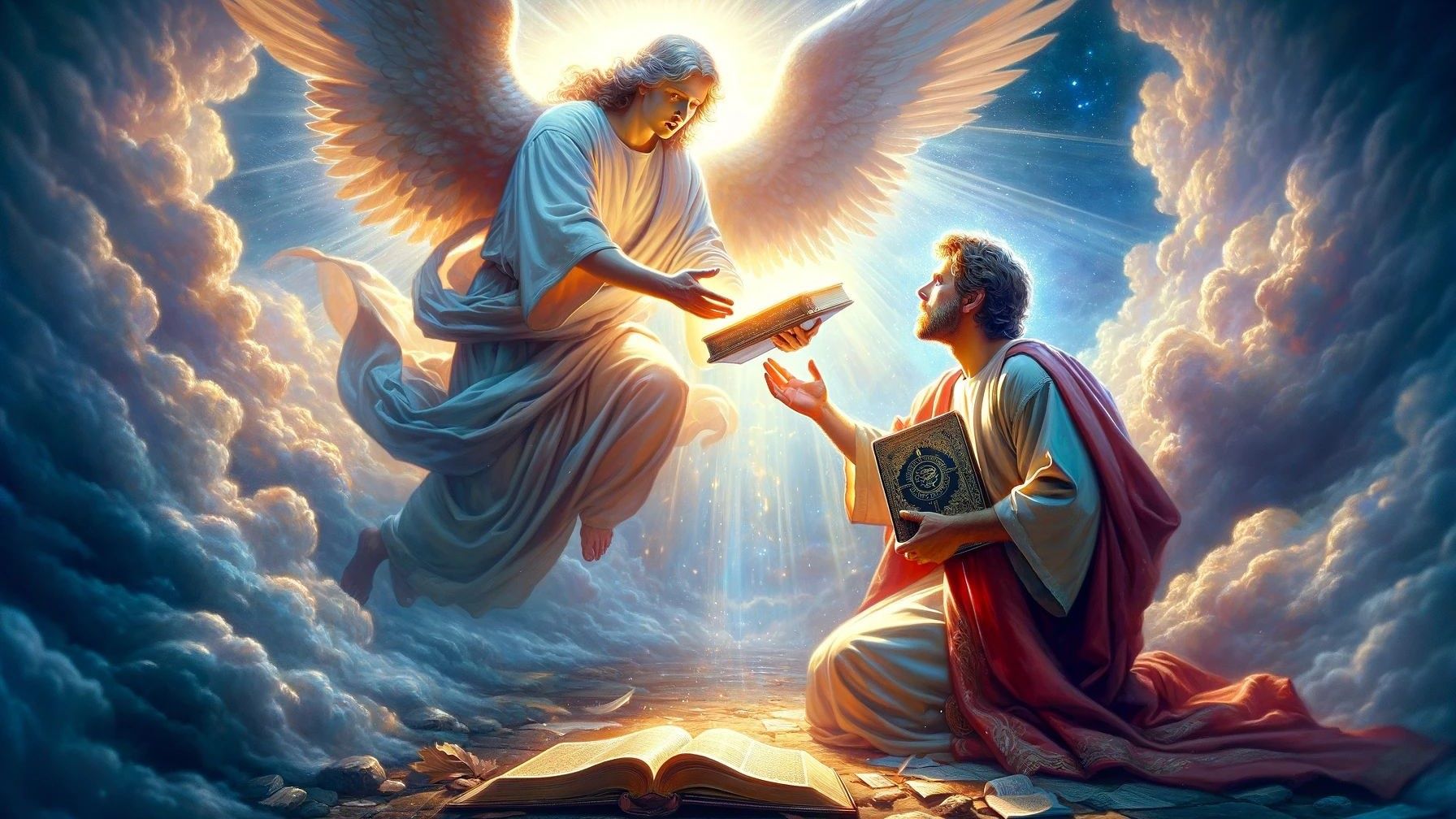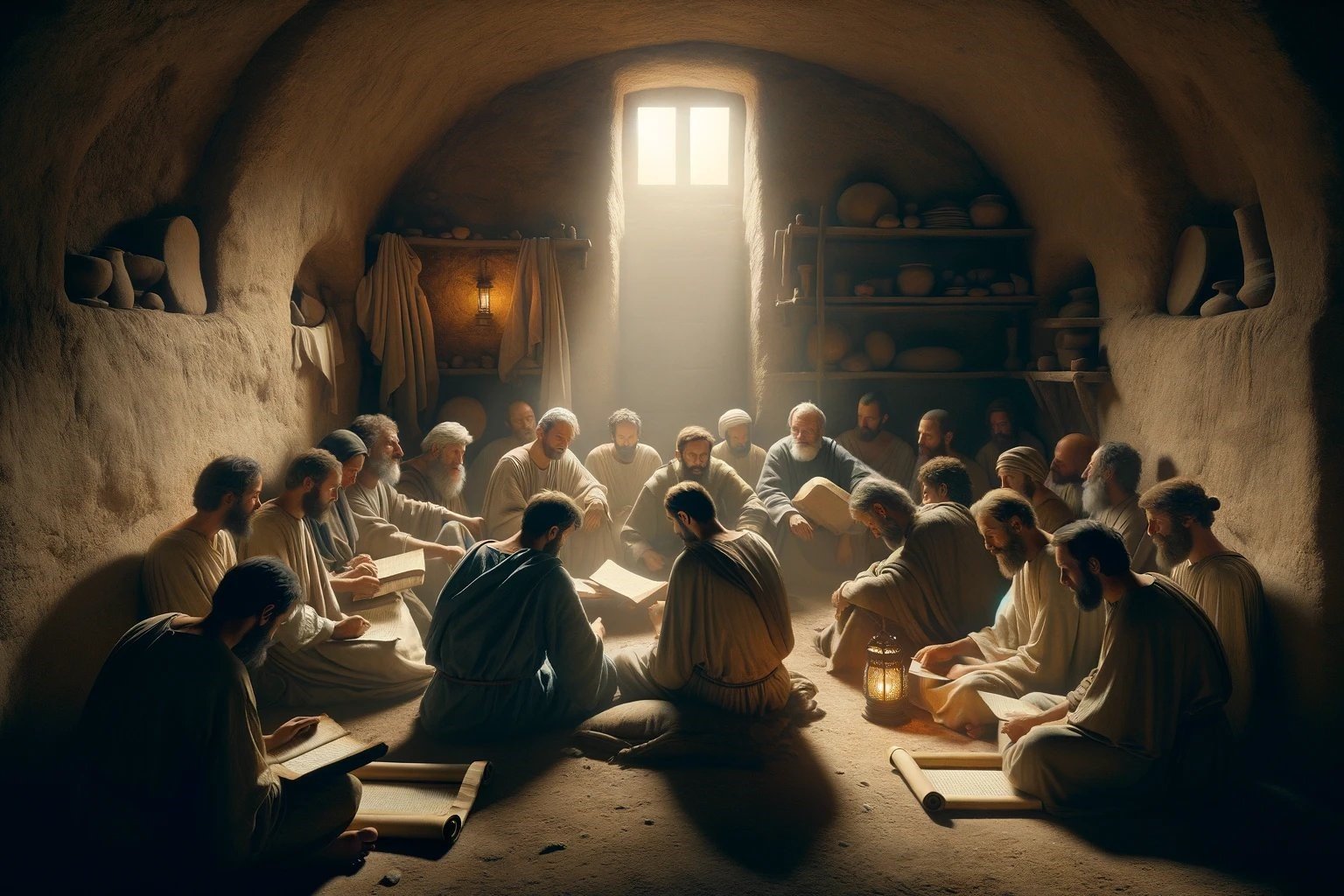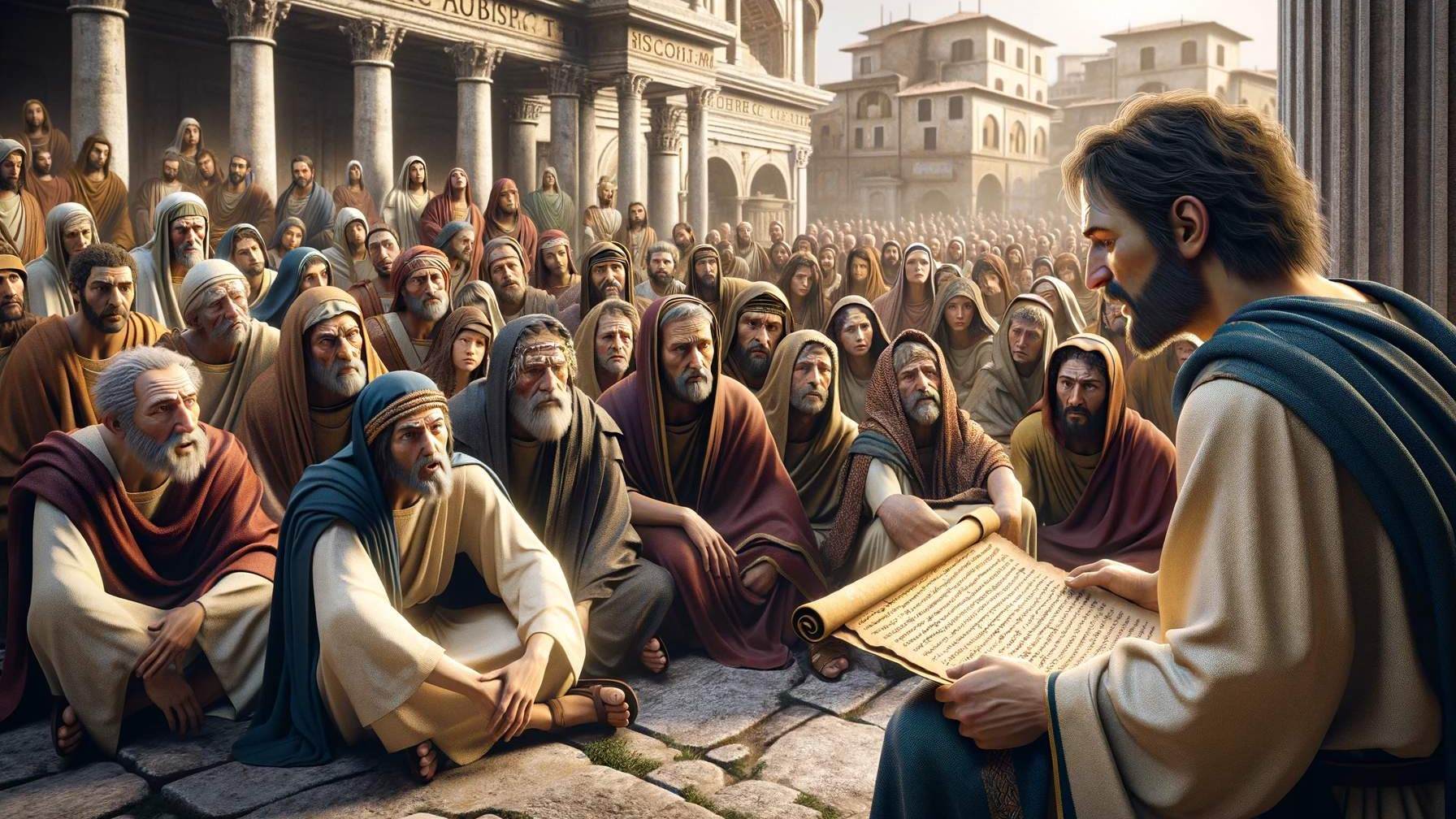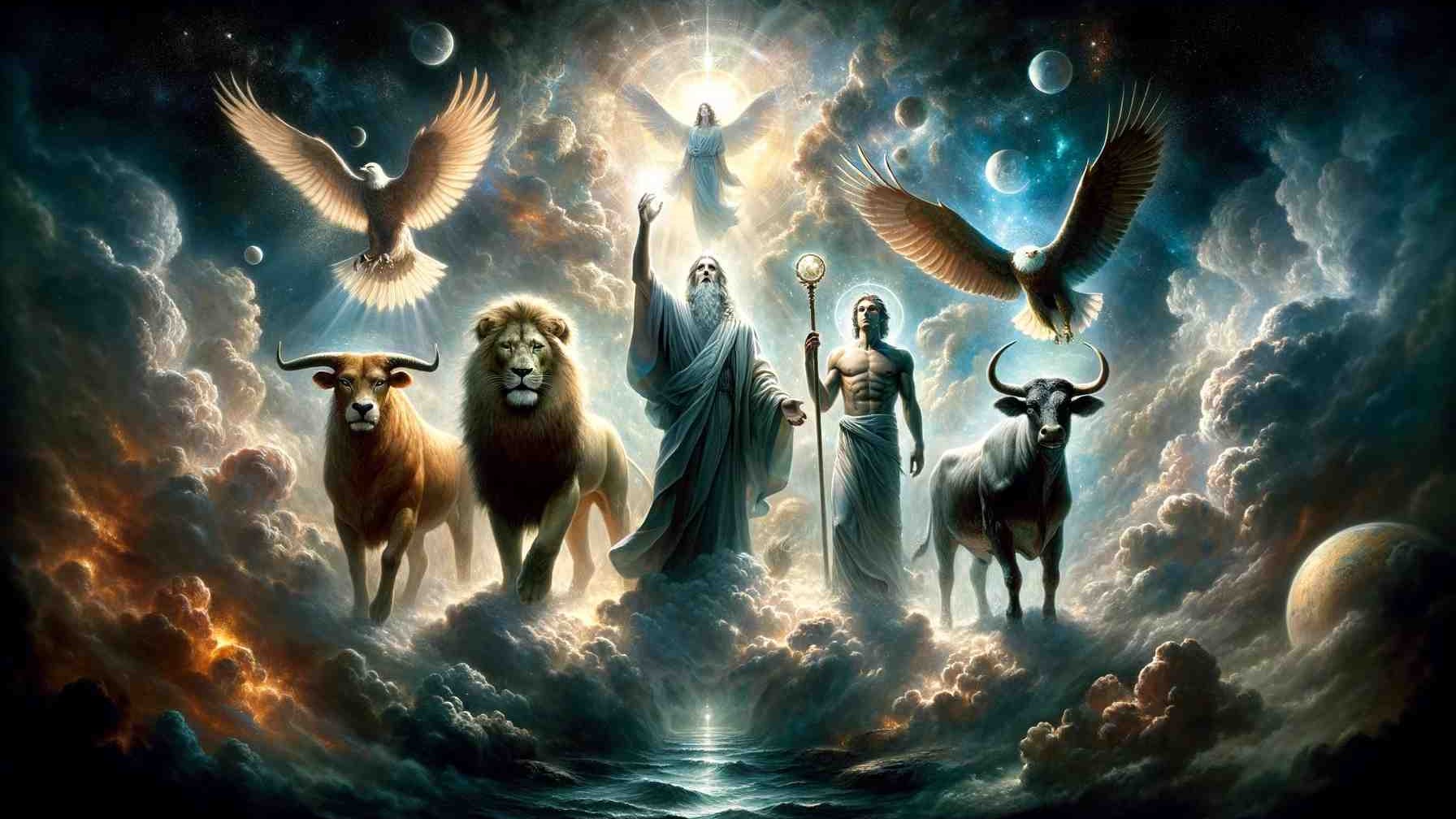Home>Bible Facts>What Is The Book Of Life In Revelation 20


Bible Facts
What Is The Book Of Life In Revelation 20
Published: February 11, 2024
Peter Smith, Editorial Director at Christian.net, combines deep insights into faith, politics, and culture to lead content creation that resonates widely. Awarded for his contributions to religious discourse, he previously headed a major organization for religious communicators, enhancing dialogue on faith's societal impacts.
Discover the significance of the Book of Life in Revelation 20 and explore fascinating Bible facts. Uncover the truth about this pivotal concept.
(Many of the links in this article redirect to a specific reviewed product. Your purchase of these products through affiliate links helps to generate commission for Christian.net, at no extra cost. Learn more)
Table of Contents
Introduction
The Book of Life holds a profound significance in the realm of biblical teachings, serving as a timeless symbol of divine knowledge and spiritual enlightenment. Throughout the scriptures, this sacred book is referenced in various contexts, each carrying a unique message that resonates deeply with believers. Its mention in the Book of Revelation 20, in particular, unveils a compelling narrative that has captivated the hearts and minds of countless individuals seeking understanding and solace in their faith.
As we embark on a journey to unravel the essence of the Book of Life, it is essential to delve into its multifaceted meanings and explore the intricate tapestry of wisdom woven within its pages. From its origins in ancient scriptures to its relevance in contemporary spiritual discourse, the Book of Life stands as a testament to the enduring power of divine revelation and the eternal promise of salvation.
In the subsequent sections, we will embark on an illuminating exploration of the Book of Life, delving into its profound significance and the pivotal role it plays in the Book of Revelation 20. Through this exploration, we aim to gain a deeper understanding of the spiritual truths encapsulated within this sacred text and the profound impact it continues to exert on the hearts and minds of believers across the globe.
The Meaning of the Book of Life
The Book of Life, also known as the Lamb's Book of Life, holds a central place in Christian theology and eschatology. Its significance transcends mere symbolism, representing a divine record that encompasses the names of those destined for eternal life. The concept of a celestial ledger containing the names of the righteous finds its roots in ancient Judaic traditions, where meticulous records were maintained to denote the chosen people of God.
In essence, the Book of Life serves as a testament to God's omniscience and sovereignty, signifying His intimate knowledge of His creation and His unwavering commitment to the salvation of humanity. The act of inscribing names in the Book of Life symbolizes divine election and the assurance of eternal fellowship with the Creator.
Moreover, the Book of Life embodies the concept of divine remembrance, reflecting God's enduring love and mindfulness towards His children. The scriptures depict instances where individuals are implored to ensure their names are inscribed in this sacred book, underscoring the profound significance attached to this celestial registry.
The Book of Life also serves as a poignant reminder of the transformative power of faith and redemption. It encapsulates the hope and assurance of eternal life, serving as a source of comfort and encouragement for believers navigating the trials and tribulations of earthly existence.
Furthermore, the Book of Life embodies the divine principle of accountability, underscoring the eternal consequences of one's choices and actions. It stands as a testament to the righteousness and justice of God, affirming that every individual's destiny is inscribed in the annals of eternity.
In summary, the Book of Life represents the epitome of divine grace and providence, offering a glimpse into the unfathomable depths of God's love and mercy. Its significance extends beyond a mere record of names; it embodies the eternal promise of salvation and the enduring legacy of faith for generations to come.
The Book of Life in Revelation 20
In the Book of Revelation 20, the mention of the Book of Life unveils a profound and awe-inspiring depiction of divine judgment and ultimate redemption. This pivotal chapter in the biblical narrative unfolds a vivid portrayal of the eschatological events, offering a glimpse into the culmination of human history and the triumph of righteousness over evil.
Revelation 20:12 (NIV) vividly describes a scene of divine judgment, stating, "And I saw the dead, great and small, standing before the throne, and books were opened. Another book was opened, which is the book of life. The dead were judged according to what they had done as recorded in the books." This evocative imagery encapsulates the solemnity and gravity of the final judgment, where every individual is held accountable for their deeds, and their eternal destiny is determined by their inscription in the Book of Life.
The Book of Life in Revelation 20 serves as the ultimate arbiter of salvation, containing the names of the redeemed and the faithful who have found favor in the eyes of the Almighty. Its mention in this apocalyptic context underscores its pivotal role in the divine dispensation of justice and mercy, as it stands as a testament to God's unwavering commitment to the salvation of humanity.
Moreover, Revelation 20:15 (NIV) presents a sobering proclamation, stating, "Anyone whose name was not found written in the book of life was thrown into the lake of fire." This solemn declaration underscores the irrevocable consequences of being absent from the Book of Life, emphasizing the eternal separation from God and the dire fate of those who have chosen to reject His grace and salvation.
The Book of Life in Revelation 20 thus emerges as a poignant symbol of divine grace and judgment, encapsulating the profound dichotomy between eternal fellowship with God and eternal condemnation. Its mention in this climactic chapter of the scriptures serves as a powerful reminder of the ultimate significance of one's spiritual state and the eternal ramifications of one's choices and actions.
In essence, the Book of Life in Revelation 20 serves as a timeless beacon of hope and warning, offering a compelling portrayal of the divine culmination of human history and the eternal destiny of every soul. Its mention in this apocalyptic context resonates with believers, inspiring introspection and reaffirming the profound truth that our names in the Book of Life bear eternal significance.
Significance of the Book of Life
The Book of Life holds profound significance within Christian theology, serving as a poignant symbol of divine grace, accountability, and eternal assurance. Its mention throughout the scriptures resonates deeply with believers, offering a glimpse into the unfathomable depths of God's love and the eternal promise of salvation.
At its core, the Book of Life embodies the divine principle of election and remembrance. It stands as a testament to God's omniscience and sovereignty, signifying His intimate knowledge of His creation and His unwavering commitment to the salvation of humanity. The act of inscribing names in the Book of Life symbolizes divine election and the assurance of eternal fellowship with the Creator. This divine remembrance encapsulates the enduring love and mindfulness of God towards His children, offering solace and hope in the face of life's trials and tribulations.
Furthermore, the Book of Life serves as a poignant reminder of the transformative power of faith and redemption. It encapsulates the hope and assurance of eternal life, serving as a source of comfort and encouragement for believers navigating the complexities of earthly existence. Its significance extends beyond a mere record of names; it embodies the eternal promise of salvation and the enduring legacy of faith for generations to come.
Moreover, the Book of Life embodies the divine principle of accountability, underscoring the eternal consequences of one's choices and actions. It stands as a testament to the righteousness and justice of God, affirming that every individual's destiny is inscribed in the annals of eternity. This profound accountability serves as a sobering reminder of the eternal ramifications of one's spiritual state, emphasizing the imperative of seeking divine grace and living a life aligned with God's will.
In essence, the Book of Life represents the epitome of divine grace and providence, offering a glimpse into the unfathomable depths of God's love and mercy. Its significance extends far beyond a mere registry; it embodies the eternal promise of salvation and the enduring legacy of faith for generations to come. As believers contemplate the profound implications of the Book of Life, they are reminded of the divine assurance of eternal fellowship with God and the imperative of living a life that reflects the transformative power of faith and redemption.
Conclusion
In conclusion, the Book of Life stands as a timeless testament to the enduring grace and providence of God, offering believers a glimpse into the unfathomable depths of divine love and mercy. Its significance transcends mere symbolism, embodying the eternal promise of salvation and the enduring legacy of faith for generations to come. From its origins in ancient scriptures to its profound mention in the Book of Revelation 20, the Book of Life serves as a poignant symbol of divine election, remembrance, and accountability.
The Book of Life encapsulates the transformative power of faith and redemption, offering believers a source of comfort and encouragement as they navigate the complexities of earthly existence. Its mention in Revelation 20 unveils a compelling narrative of divine judgment and ultimate redemption, underscoring the eternal significance of one's spiritual state and the irrevocable consequences of one's choices and actions. This apocalyptic portrayal serves as a timeless beacon of hope and warning, inspiring introspection and reaffirming the profound truth that our names in the Book of Life bear eternal significance.
As believers contemplate the profound implications of the Book of Life, they are reminded of the divine assurance of eternal fellowship with God and the imperative of living a life that reflects the transformative power of faith and redemption. The Book of Life stands as a testament to God's enduring love and mindfulness towards His children, offering solace and hope in the face of life's trials and tribulations. Its mention throughout the scriptures resonates deeply with believers, serving as a poignant reminder of the unfathomable depths of God's love and the eternal promise of salvation.
In essence, the Book of Life embodies the divine principle of election, remembrance, and accountability, offering believers a profound glimpse into the eternal truths that underpin their faith. Its enduring significance serves as a timeless testament to the unwavering commitment of God to the salvation of humanity, affirming that every individual's destiny is inscribed in the annals of eternity. As believers seek to align their lives with the transformative power of faith and redemption, the Book of Life stands as a timeless beacon of hope, offering assurance of eternal fellowship with the Creator and the enduring legacy of divine grace for generations to come.















